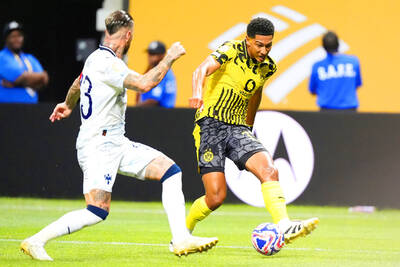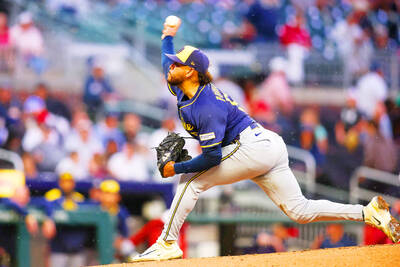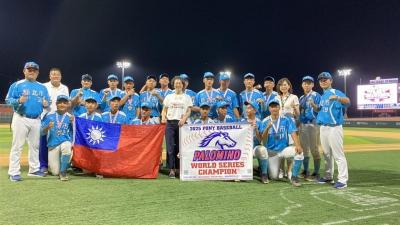In less than three weeks, 32 soccer teams from around the world will square off for the chance to lift the World Cup trophy in South Africa. Thirty-one of them will go home empty-handed.
For television broadcasters preparing to cover the tournament, by some measures the world’s biggest sports event, the odds will be nearly as challenging. The World Cup is expected to provide them with a welcome increase in viewership and advertising. However, the soaring price of TV rights means that few will actually make money from the event.
Several mainstream free TV channels have found the math so unfavorable that they have ceded broadcast rights to rivals, including pay-TV channels that have previously found it hard to break into the World Cup. In Europe, the Middle East and parts of Asia, more of the tournament than ever before will be shown on premium cable or satellite channels, instead of broadcast outlets.
While pay-TV companies long ago secured the rights to top European league soccer, commercial broadcasters and public television companies held on to the World Cup across most of Europe, the largest television market for the tournament.
By bringing pay television into the mix, FIFA, the governing body for the tournament, has been able to generate significantly more revenue from the sale of television rights.
Worldwide, this has generated US$2.15 billion, up 53 percent from the 2006 event, according to Sportcal, a research firm.
“There’s always debate in the sport business between maximizing revenue and maximizing coverage,” which is important to keep sponsors happy, said Ezechiel Abatan, senior researcher at Sportcal. “FIFA has been pretty good at doing both.”
Now, as free commercial channels and public broadcasters wrestle with budgetary constraints, pay-television providers, which have come through the recession in better health, are making further gains.
In France, for example, eight of the 64 World Cup matches will be available only on Canal Plus, a pay-TV provider. The opening for Canal Plus came when TF1, a commercial broadcaster that had bought French rights to all the matches, offered up several packages of games to rivals last winter after a plunge in advertising revenue during the recession.
“The rights fees have gone up so much, many broadcasters are not going to be able to cover the cost through advertising alone,” said Tim Westcott, senior analyst at Screen Digest, a research firm in London.
Screen Digest estimates that the World Cup will add between 1 and 2 percentage points to growth in global television advertising revenue this year. For a broadcaster like TF1 in France, the firm said, that could mean an extra 20 million euros to 30 million euros (US$24.4 million to US$36.6 million).
However, TF1 spent 120 million euros, on the rights, reportedly recouping only 33 million euros of that when it resold some of the matches.
While audiences in a few markets may balk at paying to watch matches, viewership is expected to continue to grow in places like the US.
There, the rights are shared by ABC and the ESPN cable service — both of which are owned by Walt Disney — and Univision, the Spanish-language channel.
However, in parts of North Africa and the Middle East, fans may have to pay; al-Jazeera, which owns the rights across much of the region, is making the games available only on premium channels in a number of countries.
European regulations still require crucial games of national interest to be shown on free television. Generally, those include the final, the semifinals and any match involving the home team in its domestic market.
In Britain, however, the entire tournament is subject to such rules, so the World Cup broadcasts will be shared between the publicly owned the British Broadcasting Corp and a free commercial broadcaster, ITV.
“Whenever you talk about the World Cup being on pay TV, lurking at the back of your mind is concern that some politician will say, ‘This is terrible, the World Cup is part of our cultural heritage,’” said Ross Biggam, director general of the Association of Commercial Television in Europe, which includes pay TV operators among its membership. “But there is already protection in place for that.”

Jobe Bellingham on Tuesday admitted to having “anxieties” on following in brother Jude’s footsteps after joining Borussia Dortmund in the summer. Jobe Bellingham, 19, is two years younger than Jude Bellingham, who joined Real Madrid in 2023 after three years at Dortmund. A centerpiece of the England national team, Jude Bellingham has emerged as one of the best players in the world in recent seasons. The younger Jobe Bellingham joined Dortmund in June from Sunderland after their promotion to the English Premier League. He admitted he understood what the perception would be ahead of the move to Germany. “It’s something you do think about.

Before Tuesday’s 7-2 win at the Atlanta Braves, Milwaukee Brewers manager Pat Murphy suggested “most people couldn’t tell you five players on our team.” A look at the standings would indicate more Brewers players soon will be recognized by more fans. After all, it is difficult to overlook a team that not only continues to extend their lead in the National League Central, but also boasts the best record in the majors. “What we’re doing in here right now is special,” right-handed pitcher Freddy Peralta said after allowing only four hits and one run in five innings, while setting a career high with

A baseball team from New Taipei City won the US Pony Palomino Division World Series yesterday in Laredo, Texas, defeating the US West representative team from Azusa, California, 2-1. Ku-Pao Home Economics and Commercial High School earned the right to represent Taiwan in the Pony Palomino (17 to 18 age group) World Series after winning this year's Wang Chen-chih Cup, a competition named after Taiwanese-Japanese baseball legend Wang Chen-chih (王貞治), also known as Sadaharu Oh. In the championship game against Azusa, Ku-Pao's starting pitcher Luo Yu-yan (羅于晏) was erratic early, giving up two hits in the bottom of the first inning, followed

Taiwanese pitcher Teng Kai-wei took the mound in New York on Saturday as the starting pitcher for the San Francisco Giants in his MLB season debut against the New York Mets, pitching 3.1 innings and allowing five runs. The Taiwanese right-hander struggled early, giving up three runs in the bottom of the first inning, including a three-run homer to Mets slugger Pete Alonso — his 250th career home run. However, Teng was not fazed and soon found his footing, holding the Mets scoreless in the bottom of the second and third innings. Meanwhile, Mets starter Kodai Senga of Japan made a few errors